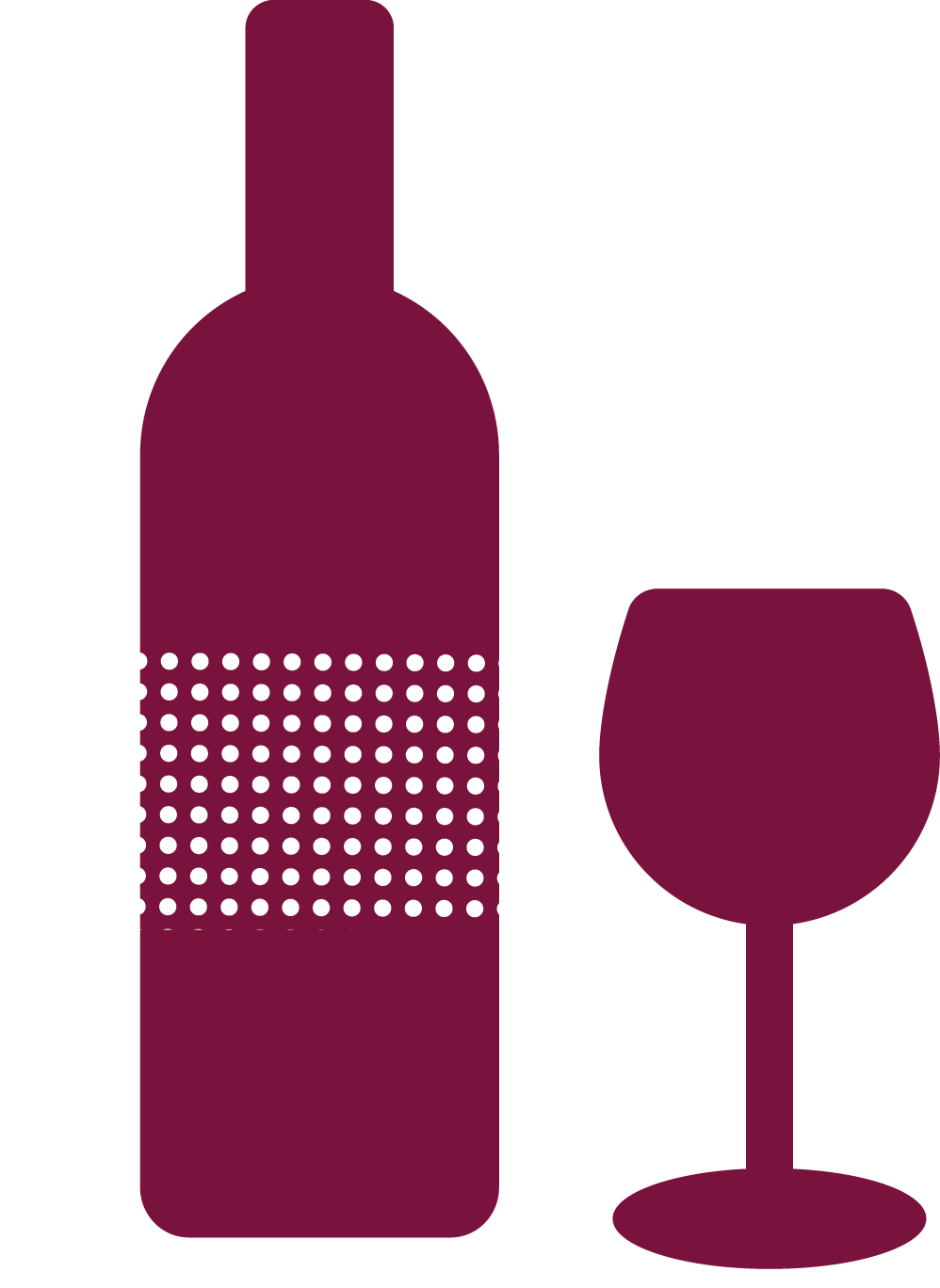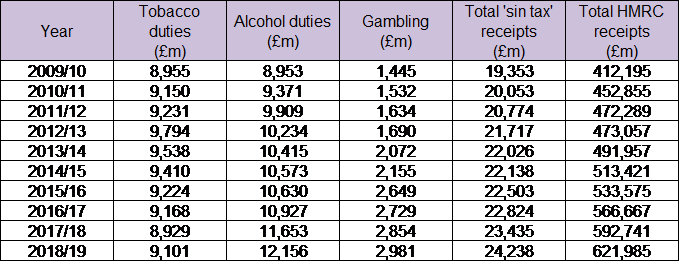Publications that covered this story include: Financial Times on 15 April 2019.
- Slowing tax take reflects healthier lifestyles of consumers
- Is the soft drinks tax a ploy to plug gap?
‘Sin tax’ receipts on alcohol, cigarettes and gambling activities are increasing at just half the pace of total tax receipts.
Over the last decade, total HMRC receipts have increased 51% to £621bn in 2018/19, whilst ‘sin taxes’ have risen just 25% to £24.2bn – see table below.
The healthier lifestyles of consumers is one of the key reasons behind lagging ‘sin tax’ receipts, as fewer individuals now drink alcohol or smoke. The number of smokers in England has been steady declining over recent years and dropped to 6.1 million in 2017, down 19% from 5.1 million in 2014.
The increasing awareness of the negative impacts of alcohol consumption among millennials has also reduced sin tax receipts. 29% of 16 to 24-year olds were non-drinkers in 2015, up from 18% in 2005**.
Lagging ‘sin tax’ receipts have also been linked to smuggled and bootleg cigarettes. High taxes on alcohol and tobacco products in the UK increases the incentives for smugglers to illegally import them, which in turn leads to reduced tax take for HMRC.
In October 2018, Chancellor Phillip Hammond announced an additional 2% rise above inflation to a pack of cigarettes.
The government’s recent introduction of the soft drinks industry levy could help HMRC make up for lagging ‘sin tax’ receipts. The soft drinks industry levy was brought in by the Government in April 2018 and adds a charge of up to 24p per litre of drink, depending on its sugar content.
Since its introduction, HMRC has collected £240m from the soft drinks levy***.
Clive Gawthorpe, tax partner in our Manchester office, says: “The Treasury has introduced the soft drinks levy partly to help our health but perhaps more importantly it boosts HMRC sin tax receipts.”
“As consumer lifestyles change, and fewer individuals smoke or drink, HMRC is starting to reach the limits of what it can feasibly collect from sin taxes and this is starting to show in receipts.”
“The food industry will be concerned that HMRC will turn to them for a source of new taxes.”
Total HMRC receipts have increased 51% to £621bn in 2018/19, whilst ‘sin taxes’ have risen by just 25% to £24.2bn
*HMRC, latest available data
**UCL 2017 – BMC Public Health
****HMRC, latest available data



